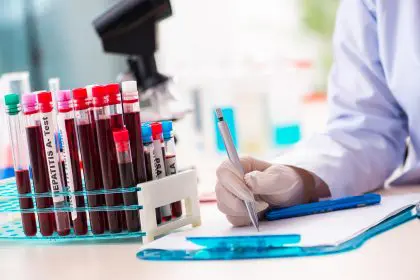In the grand theater of human health, the liver plays a starring role, yet it rarely gets the spotlight it deserves. This remarkable organ detoxifies your blood, metabolizes nutrients, and stores energy, all while operating behind the scenes. But like any hardworking star, it has its limits. When the liver is overburdened or damaged, it sends out distress signals that are easy to miss—unless you know what to look for. Below, we unveil four critical warning signs that your liver may be in trouble and needs your attention.
Unexplained fatigue and weakness
Feeling perpetually drained, no matter how much rest you get? While fatigue can stem from countless causes, it’s also one of the earliest and most common signs of dysfunction. It plays a key role in converting food into energy, and when it’s not functioning properly, your body struggles to maintain its energy levels. Toxins that it would normally filter out can also build up in the bloodstream, leading to a persistent sense of exhaustion.
If your fatigue is accompanied by other symptoms like nausea or loss of appetite, it’s time to take notice. Chronic, unexplained tiredness is your body’s way of sounding the alarm that something deeper may be amiss.
Yellowing of the skin and eyes (jaundice)
Jaundice, the yellowing of the skin and the whites of the eyes, is one of the most telltale signs of trouble. This condition occurs when the liver is unable to process bilirubin, a yellow pigment produced during the breakdown of red blood cells. When bilirubin builds up in the bloodstream, it deposits in the skin and eyes, creating a distinct yellowish hue.
Jaundice can indicate a range of issues, from hepatitis to cirrhosis, and should never be ignored. If you notice this symptom, seek medical attention immediately. It’s a clear signal that your liver is struggling to perform one of its most critical functions.
Abdominal pain and swelling
The liver itself doesn’t have pain receptors, but when it becomes inflamed or enlarged, it can press against surrounding tissues, causing discomfort in the upper right side of the abdomen. This pain is often described as a dull ache or a feeling of fullness. In more severe cases, fluid can accumulate in the abdomen—a condition known as ascites—leading to noticeable swelling and bloating.
Abdominal pain and swelling are often signs of advanced disease, such as fatty liver disease or cirrhosis. If you experience persistent discomfort or notice a sudden increase in abdominal girth, it’s crucial to consult a healthcare professional.
Changes in stool and urine color
Your bathroom habits can offer surprising insights into your liver health. Dark urine, for instance, can be a sign that bilirubin is spilling into the urine due to liver dysfunction. On the other hand, pale or clay-colored stools may indicate that bile, a digestive fluid produced, isn’t being properly secreted into the intestines.
These changes in color are often overlooked, but they’re important clues that your liver may be struggling. Paying attention to these subtle shifts can help you catch issues early, when they’re most treatable.
What you can do to support your liver
Recognizing the warning signs is only the first step. Taking action to support your liver health is equally important. Here are a few strategies to help keep your liver in peak condition:
- Maintain a balanced diet: Focus on whole, nutrient-rich foods like fruits, vegetables, lean proteins, and whole grains. Avoid excessive consumption of processed foods, sugar, and saturated fats, which can strain the liver.
- Limit alcohol intake: Alcohol is a leading cause of damage. Moderation is key, and for some, complete abstinence may be necessary.
- Stay hydrated: Water helps flush out toxins more efficiently. Aim for at least eight glasses a day.
- Exercise regularly: Physical activity supports overall health and can help prevent fatty disease.
- Avoid unnecessary medications: Over-the-counter drugs and supplements can be hard. Always follow dosage instructions and consult a healthcare provider if you’re unsure.
The silent crisis of liver health
The liver is a resilient organ, capable of regenerating itself even after significant damage. But this remarkable ability can also be its downfall, as it often masks problems until they become severe. By the time symptoms like jaundice or abdominal swelling appear, may already be in serious trouble.
This silent crisis underscores the importance of proactive care. Regular check-ups, blood tests, and function panels can help detect issues early, when they’re most manageable. If you’re at higher risk for liver disease—due to factors like obesity, diabetes, or a history of alcohol use—being vigilant about your health is even more critical.
A call to action
Your liver is a vital player in your overall well-being, and its health is too important to ignore. By recognizing the warning signs and taking steps to support its function, you can safeguard this essential organ and ensure it continues to perform its many roles with ease.













